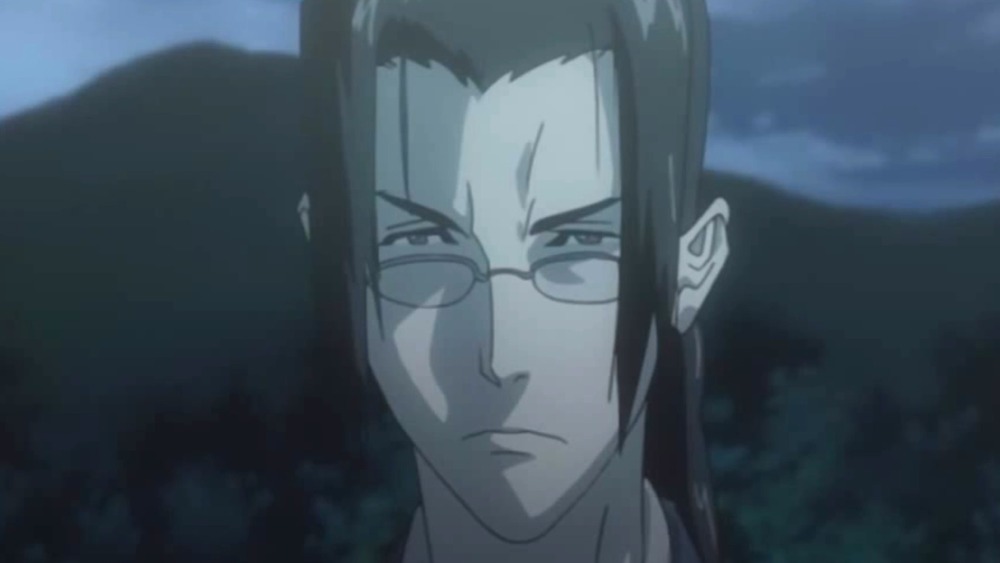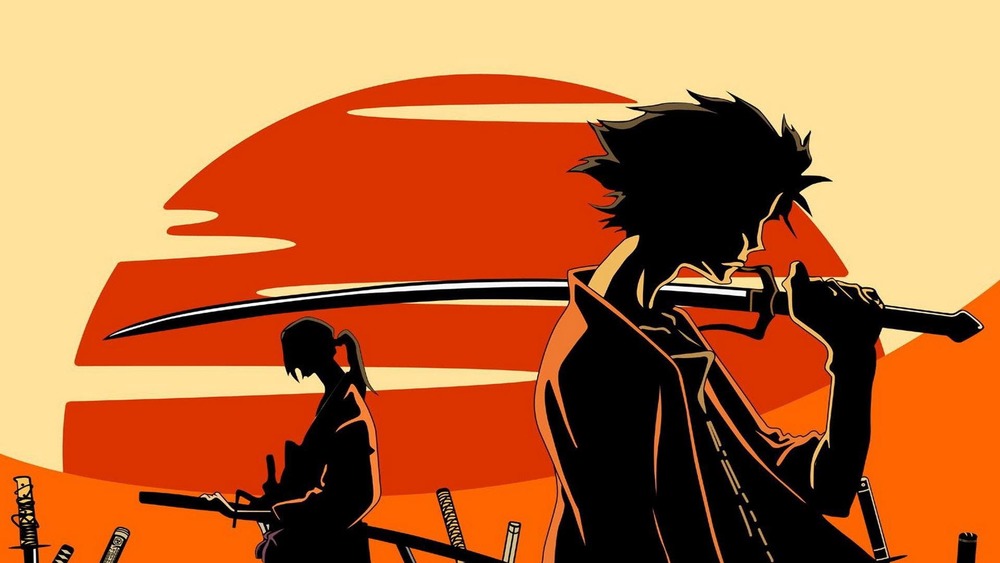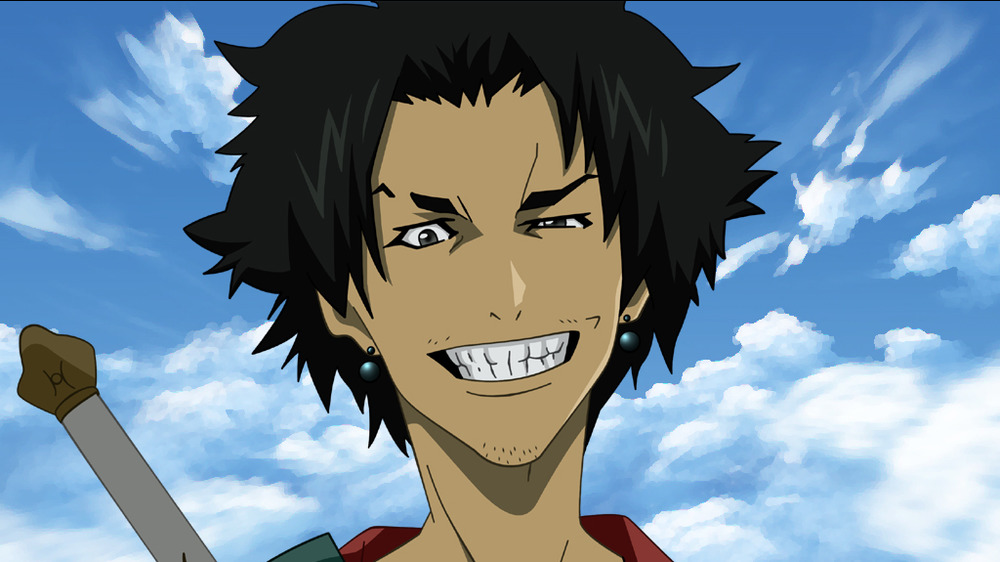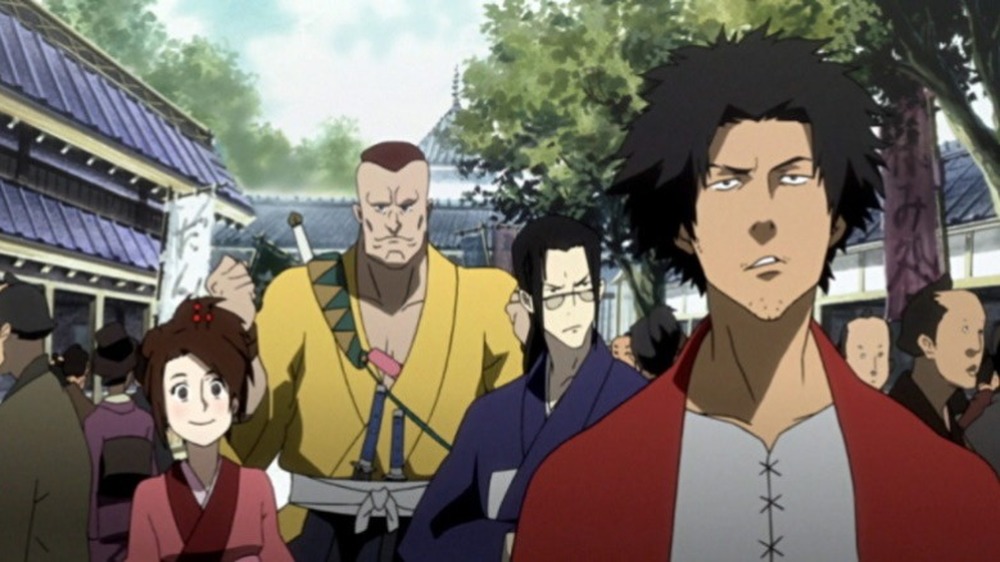The Hip-Hop Anime Hidden Gem Cowboy Bebop Fans Need To Watch
By this point, Cowboy Bebop is as iconic to anime as Dragonball Z or Pokemon. Even among the most anti-anime, weeaboo-shunning crowds, you'd be hard pressed to find at least one person who has never heard of the show. Chances are that at least a few more would recognize those impactful, blasting horns that make up the opening bars of the show's jazzy theme song, "Tank!"
How could they not know about it? Western anime fans haven't stopped praising it since the show first debuted on Cartoon Network's Adult Swim way back in 2001. Twenty years later, and the show is still in the top 50 of MyAnimeList.net's most popular anime of all time. Cowboy Bebop is the poster boy of what a single-season anime can do when it fully dedicates itself to telling a fun, flashy, adventurous story equally dense with themes as it is with fanfare. There are, of course, some exceptions to this. A few choice anime weigh in heavy enough to go toe-to-toe with Cowboy Bebop. Unsurprisingly, one of those anime is made by the same team.
If you love Cowboy Bebop, you really need to watch Samurai Champloo
It's likely that if you are a Cowboy Bebop fan, then you don't need this article to tell about what Samurai Champloo is. It was directed by the same individual, Shinichiro Watanabe. Like its predecessor, Samurai Champloo isn't exactly the most niche anime in the world. It may not be in the top 50 most popular anime of all time, but it is in the top 100. In fact, it beats out Dragonball Z, the godfather of all Shonen anime, by just a few spots.
After all, if someone liked Cowboy Bebop, then there is a pretty high chance they would like Samurai Champloo, unless they had some weird bias against samurai. It does all of the things that make Cowboy Bebop such a great anime, just with a different twist. It replaces jazz with hip-hop and science fiction with historical fiction (the show is set in Japan's late Edo period), but it's still the same kind of ride. It has the same level of care given to its stories and characters and the same sort of whimsical charm that made fans so crazy about its predecessor.
Why Samurai Champloo's story is just as good
Cowboy Bebop found itself zeroing in on the lives of four (arguably five, if you count the dog) spacefaring mercenaries on a journey just to make a healthy buck. Hidden behind that premise, however, is the tragic story of leading man Spike's lost love and his attempts to find her. It's a touching tale that snuck its way beautifully in between the more obvious stories about chasing down interplanetary criminals for meager rewards.
Samurai Champloo follows a similar formula, wherein the main characters tackle a different main issue in each episode with an ever-present long-term goal lurking in the background until its final episodes. However, it sets itself apart from Cowboy Bebop by making its long-term conflict a larger focus for the entire cast. Likewise, Samurai Champloo's core cast interacts differently, as its smaller size and shared goal results in more well-defined, intimate relationships.
Individually, the characters Fuu, Mugen, and Jin are all strong, but together they form a team whose personalities clash and combine in just the right ways to carry the show for the duration of its 26 episodes. And while fans might find themselves appreciating Cowboy Bebop's cast and story more, they'll find it hard to deny that Samurai Champloo carries a similar breed of heartfelt melancholy that makes you celebrate its characters' relationships.
Samurai Champloo made hip-hop samurai work
On top of Samurai Champloo's golden story is another element shared by Cowboy Bebop: a top-tier soundtrack. But while Cowboy Bebop grabbed its audience's ears with a whirlwind of upbeat freestyle jazz, Samurai Champloo lulls its viewers with the grainy sounds of lo-fi hip-hop's forefather. The soundtrack is famously produced by Nujabes, the legendary Japanese producer whose music found itself at the heart of the lo-fi genre in the years following his untimely death.
Samurai Champloo's soundtrack is more reserved, faded, and distant than its predecessor. The anime itself has its action-packed moments, but the serene beat and lyrics of its opening theme, "Battle Cry," induce a more reflective perspective on the bloodshed at hand. It's like a warrior-poet ruminating on his violent lifestyle once the day's fighting is over with. Needless to say, even if you don't watch Samurai Champloo, you should at least listen to the soundtrack.



